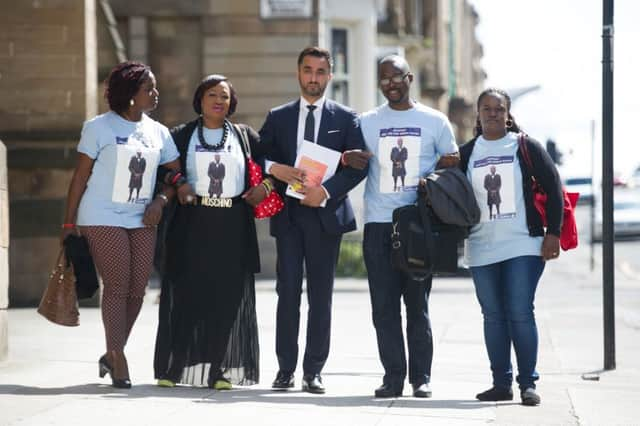Chris Marshall: Still too early to judge Pirc's effectiveness


The 31-year-old father-of-three died after being restrained by officers called to reports of a man with a knife in a Kirkcaldy street on 3 May, 2015.
But while the past 12 months have been extremely difficult for Mr Bayoh’s relatives, they have also not been easy for the organisation charged with investigating his death.
Advertisement
Hide AdAdvertisement
Hide AdThe Police Investigations and Review Commissioner (Pirc), Kate Frame, is expected to submit her report on the incident to the Crown Office in the coming weeks.
Depending on a decision about whether to bring prosecutions, it is likely the full details of what happened will only become known when a fatal accident inquiry is held at a later date.
In the absence of facts about the case, there has been plenty of commentary about whether the Pirc is up to the job.
Its investigation did not begin well. It took a month before the officers involved gave evidence, with no powers available to the Pirc to compel them to do so.
But just as the Bayoh family has been forced to endure a wait for the truth in the months that have followed, so too have those officers been the subject of allegations they have been unable to defend themselves against due to the live investigation.
The outcome of the Bayoh investigation will go a long way in determining how the Pirc is regarded in the wider context of Scottish justice. But the case is by no means the only one the commissioner has to deal with it.
Also expected to conclude in the coming weeks is a Pirc inquiry into the M9 crash which claimed the lives of Lamara Bell and John Yuill last year.
Police took three days to discover the couple’s car after an initial call from a member of the public to the Bilston Glen control room in Midlothian was not properly logged.
Advertisement
Hide AdAdvertisement
Hide AdThe incident – which Nicola Sturgeon recently described as the “lowest point” of her time as First Minister – is just one of a number being investigated by the Pirc which centre around failings at Bilston Glen.
The latest to be launched is into the delayed police response to a call about an elderly Edinburgh man who was later found to be seriously ill and taken to hospital.
It all adds up to a hefty caseload for the Pirc, which employs just 48 staff, including 15 ex-police officers among its investigations team.
Criticism has come not just from the Bayoh family – which has repeatedly talked of losing confidence in the Pirc investigation – but also from politicians concerned the body doesn’t have sufficient powers to do its job properly.
Last week Liberal Democrat leader Willie Rennie became the latest to call for the Pirc to be strengthened, saying there are “significant shortcomings” in its power to question police officers.
But it is simply too early to judge whether the Pirc is as effective as it needs to be in investigating the police.
The prospect of fatal accident inquiries being held into the deaths of Mr Bayoh, Mr Yuill and Ms Bell means that time could be some way off.
A more immediate concern for the Pirc is the level of public confidence it enjoys, which like that of Police Scotland has been shaken by the events of recent months.